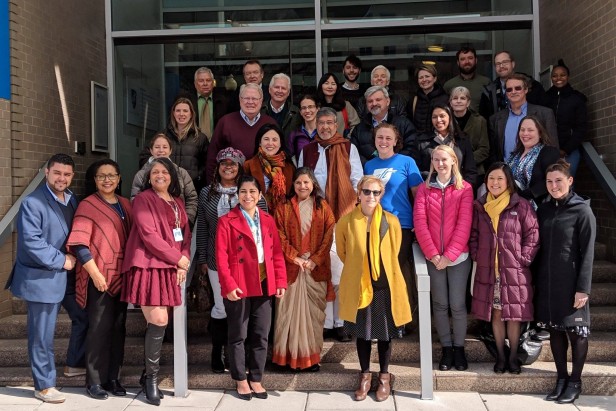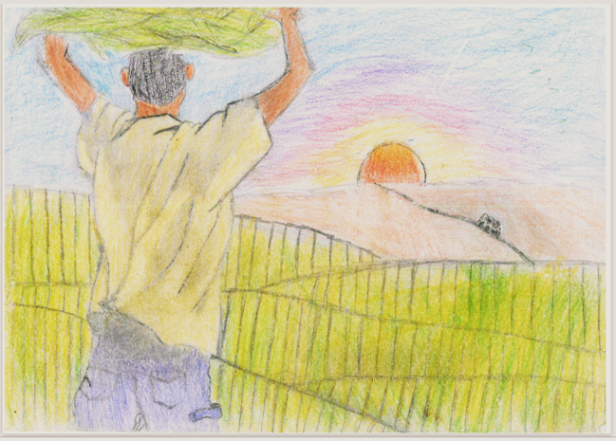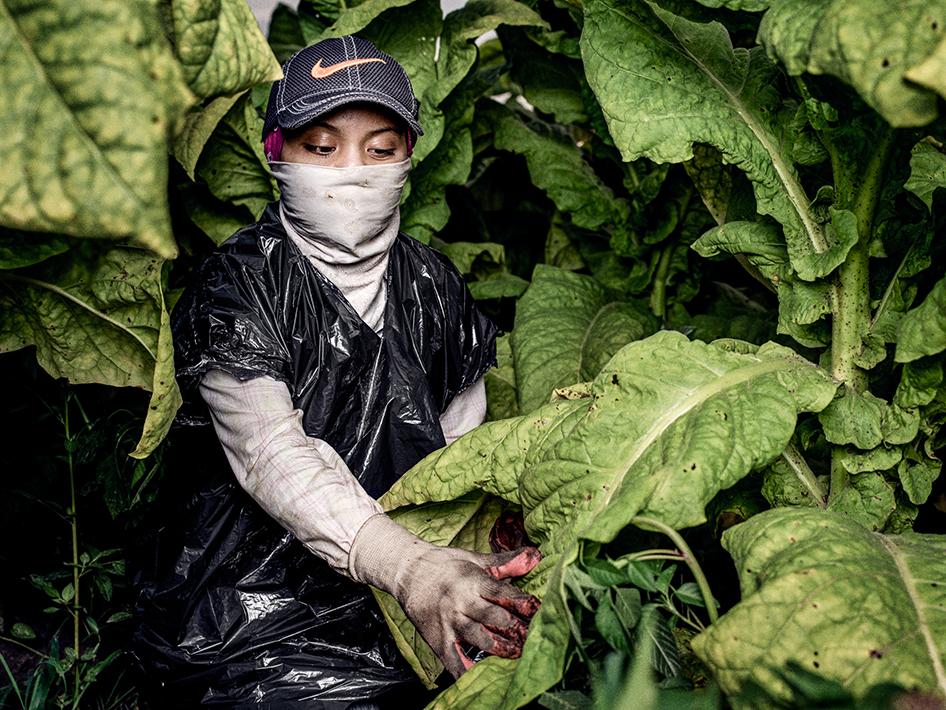Child Labor in U.S. Tobacco: Why Can’t We Make it Stop?

Kendra Moesle, Association of Farmworker Opportunity Programs
Children in the Fields Campaign (CIFC) is an active member of the Child Labor Coalition, which strives to combat child labor here in the U.S. and abroad. Also partners with us on that coalition is the 100 Million Campaign: a worldwide movement led by kids advocating for kids, whose call to action is “for a world where all young people are free, safe, and educated”.
In the U.S., the local chapter of the 100 Million Campaign has taken on child labor in tobacco, something that has been a problem in the U.S. for a long time due to the inequality of U.S. labor laws. When the 100 Million Campaign’s youth-led National Planning Committee met and discussed the number of issues before them, Executive Director of the Kailash Satyarthi Children’s Foundation US, Anjali Kochar, says they felt this was “the moment in time” when something could finally be done about child labor in tobacco. In conversations that the campaign hosted in schools across the country, this seemed to be the most galvanizing issue to young people, simply because “it just didn’t add up.” How is it illegal for minors to buy tobacco products, kids wondered, and yet it can still be perfectly legal for them to manufacture the stuff?

CIFC believes that no child should be exposed to hazardous work in agriculture, and this is especially true in tobacco, which poses additional risks to children. When kids work in tobacco, they are inevitably exposed to the nicotine that seeps through their clothes from the raw tobacco leaves. This exposure leads to Green Tobacco Sickness (GTS), a preventable illness whose symptoms include vomiting, nausea, insomnia, and more.
People ask the question: Why don’t workers just wear gloves? Wouldn’t that solve the problem of absorbing nicotine and contracting GTS?
But gloves are not officially required for this work, so employers do not provide them. Farmworker kids are also too poor to afford them – especially since the gloves wear out quickly and would frequently need to be replaced. Children are also more sensitive to nicotine absorption (hence why they’re not allowed to smoke cigarettes!) and their immune systems are not fully developed, which is why it’s imperative that they never be placed in a situation where they might contract Green Tobacco Sickness in the first place.
Some farmworker children who work in tobacco do understand the dangers they face – and so they attempt to cover themselves up with black trash bags, particularly on days when the fields are wet and chances of nicotine absorption are even higher. But when temperatures reach into the triple digits, they have to take off the suffocating trash bags or risk falling deathly ill to heat stroke. If you’ve ever been inside a tobacco field in the South in summertime, you’ll know that temperatures run ten+ degrees hotter there than in the surrounding area, which is already oppressively hot & humid. One article in the Kentucky New Era ran a story with this headline: “Think it’s hot? Step into a tobacco field.”

Working in tobacco poses such a clear danger to kids, that there’s been more legislative noise about it than most domestic child labor issues. But here we are, on the cusp of 2020, and children ages 12 and up (& often younger) are still allowed to carry out this dangerous work.
All of which begs the question: what needs to happen for this hazardous labor to stop? Well, there are a number of options available to us:
- Tobacco companies can self-regulate. In an op-ed for the Guardian, Child Labor Coalition coordinator Reid Maki called on the tobacco industry to raise the minimum age of work on their tobacco farms to 18. Unfortunately, and for obvious reasons, they have yet to do this. Children will typically accept lower wages for their work, which motivates employers and corporations to continue the practice.
- Congress could pass a law prohibiting child labor in tobacco. In 2018, 50 Congressmen and women expressed support for such a ban. Unfortunately, that did not reach the threshold that was needed to draft and pass a law. The current bill in the House, “H.R.3229: Children Don’t Belong on Tobacco Farms Act,” has only a handful of co-sponsors.
- The president could order the Department of Labor to write new regulations for the FLSA that would restrict the practice. This was very nearly accomplished in 2012, but the proposed regs were abruptly withdrawn after fierce opposition was expressed by corporations and the American Farm Bureau lobby.
Call us crazy, but we continue to have hope that our country will soon do what’s necessary to save our children. The longer we work on this issue, the more fervently we believe that ‘something’s gotta give’!
So, here’s our message to the new year: 2020, please don’t let us down.

In the U.S., many teens who work in tobacco fields wear plastic garbage bags to try to avoid nicotine poisoning. [Photo courtesy Human Rights Watch]



